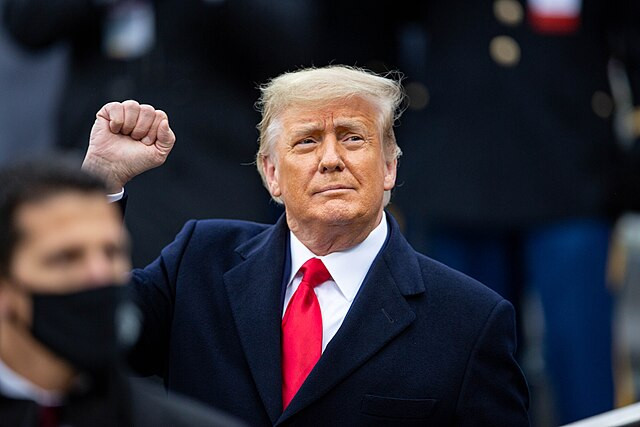In a controversial move late Friday night, President Donald Trump fired 17 independent inspectors general across key federal agencies, removing a critical layer of oversight and prompting bipartisan concerns about accountability. The dismissals, communicated via email by the White House Presidential Personnel Office, affected agencies with broad influence and control over billions of taxpayer dollars, including the departments of State, Defense, Transportation, Agriculture, and Housing and Urban Development.
The inspectors general, often regarded as nonpartisan watchdogs, are tasked with investigating waste, fraud, and abuse within federal agencies. Their independence is considered vital to ensuring transparency and accountability in government operations. Critics, however, say Trump's move prioritizes loyalty over oversight, marking a significant shift in the federal bureaucracy just days into his second term.
Hannibal Ware, inspector general of the Small Business Administration and head of the council representing government inspectors general, suggested the dismissals might violate federal law. "At this point, we do not believe the actions taken are legally sufficient to dismiss Presidentially Appointed, Senate Confirmed Inspectors General," Ware wrote in a letter obtained by Politico. Under U.S. law, the president must notify Congress 30 days in advance of removing an inspector general and provide justification for the dismissal.
Among the agencies impacted are the Department of Education, the Environmental Protection Agency, and the Department of Labor. Notably, inspectors general at the Department of Justice, Department of Homeland Security, and Office of Personnel Management remain in place, according to sources.
The firings come as Trump accelerates efforts to reshape the federal government. Agencies are reportedly rescinding diversity programs, revoking job offers, and sidelining over 150 national security and foreign policy officials. Sidney Powell, a Trump ally and former attorney, defended the move, stating on social media, "Existing IGs are virtually worthless. The whole system needs to be revamped!"
The dismissals drew swift criticism from lawmakers. Senator Elizabeth Warren (D., Mass.) denounced the move as a "purge of independent watchdogs in the middle of the night," warning it could pave the way for unchecked corruption. "President Trump is dismantling checks on his power," Warren posted on X, formerly known as Twitter. Representative Gerald Connolly (D., Va.), a senior member of the House Oversight and Government Reform Committee, labeled the firings a "Friday night coup."
Even some Republicans expressed unease. Senator Chuck Grassley (R., Iowa), a long-time advocate for inspectors general, has previously warned against such sweeping actions. "I intend to defend them," Grassley told Politico last year, emphasizing the importance of independent oversight in preserving government accountability.
Trump's decision also has historical precedent. During his first term, he dismissed five inspectors general in less than two months in 2020, including the State Department's inspector general, who played a role in Trump's impeachment proceedings. At the time, the removals raised alarms about eroding independence within federal oversight.
The firings have implications for critical investigations across the government. Inspector General Michael Horowitz of the Department of Justice, an Obama appointee whose office has handled high-profile investigations into FBI practices and congressional data breaches, survived the latest purge. Horowitz has been under scrutiny for his reports on the FBI's handling of both the Trump campaign's contacts with Russia and Hillary Clinton's private email server.






